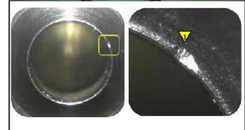I disagree. Scuba equipment service should live up to the same level as car service. How many check that the nuts on your car's wheels are tight after taking it in for brake service?
Since "It is part of basic training", can you provide an excerpt from any of the major agencies text books on how to check your drysuit valve tightness? I check that I can inflate, that the inflator doesn't continue to inflate, and that I can deflate before each dive, but I've never seen anyone check that their valves are screwed on tightly before each dive.
All the work done for me by my LDS has been top notch. In this case the drysuit went back to the manufacturer.
Agreed. If you get an oil-change, you shouldn't have to also check their work. I pay them to do the job, so I don't have to. I know how to change the oil myself, swap brake-pads, and a bunch of other things. But I also don't quite have the same level of tools, experience, indoor work-garage, lift, etc.
That said, I often do check auto-shop's work, just because I've been screwed before, and have some basic knowledge how to double-check the work. Maybe the oil is low, or they didn't replace the filter, etc. But the average person might now know how or what to check. (and for some jobs, it might surpass my knowledge).
I don't think your average scuba-diver straight out of OW knows how to check recently serviced gear. I didn't.
There is a difference between median mechanical intelligence and median theoretical intelligence.
The point is, I’d rather have an auto mechanic working on my regs instead of a software developer, because to me the mechanic is better suited and more intelligent for that job.
I'm perhaps nit-picking and agree with your overall post. I understand your analogy, but some software engineers are mechanically smart. Hell, some software engineers are even good artists, even if somewhat rare.
It depends on the software engineer. I know guys whom I'd trust more than any mechanic as they are incredibly meticulous and they build all sorts of stuff with their hands. You'd be surprised that some software geeks are incredibly mechanically inclined.
"Mechanical" stuff is often how I take a break from staring at a computer screen. It can take a variety of forms, even cooking, or various forms of DIY. I'm sure I'd be a lot better at mechanical tasks if I had the training, time, and focus or did it as a job. But servicing regulators isn't exactly "rocket science" when it comes to mechanics.
I trust myself more than an LDS, not because I'm better than them at servicing regulators, but rather because I care more about ensuring I do it right, and don't have a pile of 50+ customer regulators to churn through.




